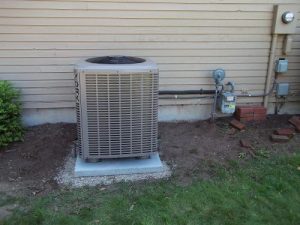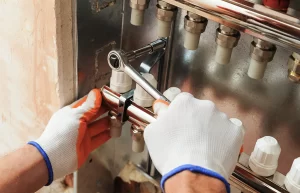We’ve talked a lot on the blog about larger, more comprehensive home improvement and home performance projects that can have a big impact on your home’s overall efficiency and comfort. What’s also true, however, is that there are a lot of smaller changes that you can make to improve the quality of life within the home while also helping to save money and energy and a regular basis. In this two-part blog series, we’re going to overview ten of those small changes that can have a large collective impact.
1. Have carpeting? Don’t forget to vacuum. If you have carpeting or other places that dirt, dust and allergens can get trapped, it’s a good idea to regularly vacuum those spaces. If this everyday task gets ignored or pushed off, the dirt, dust and allergens can get into the air inside your home, greatly reducing the overall indoor air quality. Furthermore, if you have an HVAC or other type of forced air system, these harmful particles can be pushed throughout the house. Making sure the source of this problem is cleaned as frequently as possible can help improve the indoor air quality of your home.
2. Reduce your shower time. You may think that this is one of the simplest of changes–and you’d be right! Reducing the time spent in your shower not only reduces your monthly water bill, it also greatly reduces the amount of energy required to heat that water. Cutting the time by just a few short minutes per day can add up big time over a longer period of time. As a side note on water consumption—if you typically take baths, you may want to think about showering instead. The typical bath uses up to 70 gallons of water, while a normal shower only uses 10 to 15 gallons.
3. Change your HVAC air filter regularly. This is a simple change that we’ve discussed at great lengths on our blog. However, its importance can’t be overstated. Taking the 30 seconds to change out your air filters at their recommended scheduled times (based on type). This will not only improve the indoor air quality of your home, but will also greatly increase the overall efficiency of your HVAC unit by allowing it to stop working too hard if it has a dirty filter in place.
4. Cold washes clothes, too. If you wash your clothes in the washing machine using hot or warm water, think about switching to cold. The clothing gets washed just as well (especially with newer machines) and you’ll save a ton of energy that would have gone to heating the water for the wash cycle. This small change may only save a few dollars per month on energy costs, but that cost can add up big time and reduce your overall energy footprint.
5. Power strip or unplug your electronics. Phantom power, which occurs when electronics remain plugged into the wall in your home when not in use, can actually add up to quite a bit of energy use over time. While unplugging all appliances, TVs, and other electronic devices can save a lot of unused energy, it can also be cumbersome. Using power strips helps reduce electricity usage and allows you to not have to constantly be plugging and unplugging.
We’ll be posting part 2 of this blog series shortly. Stay tuned for more small changes that can have a big impact!







